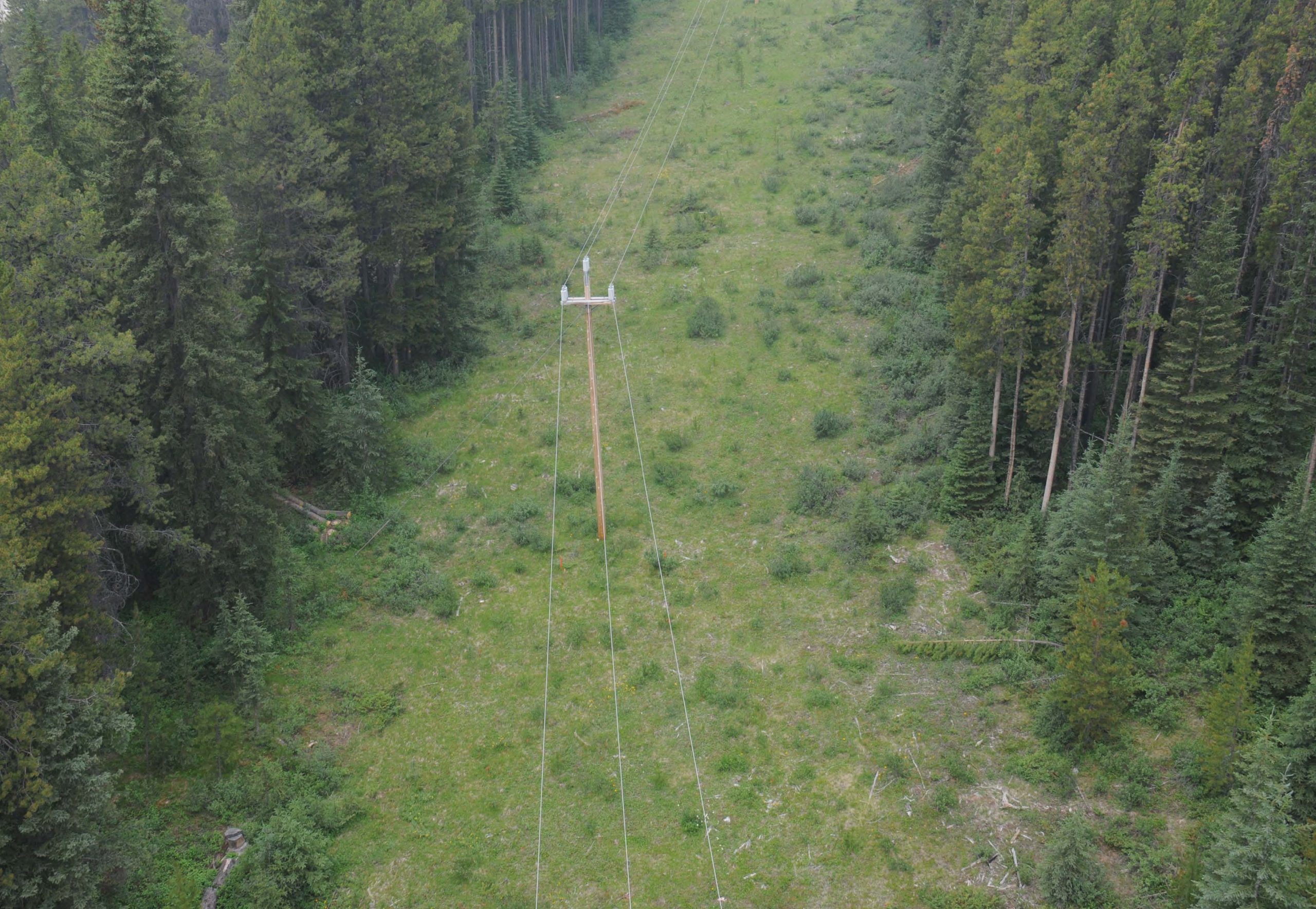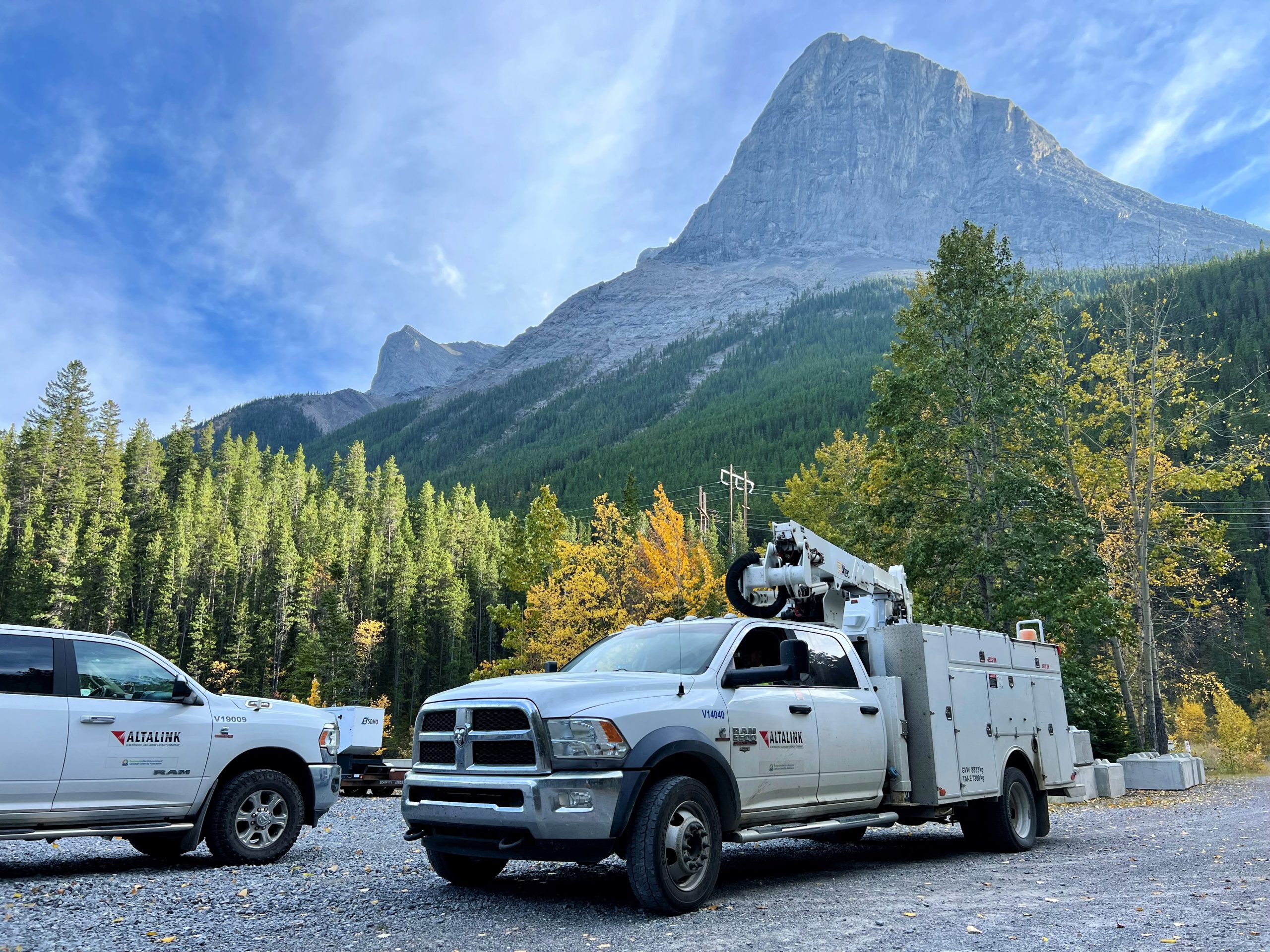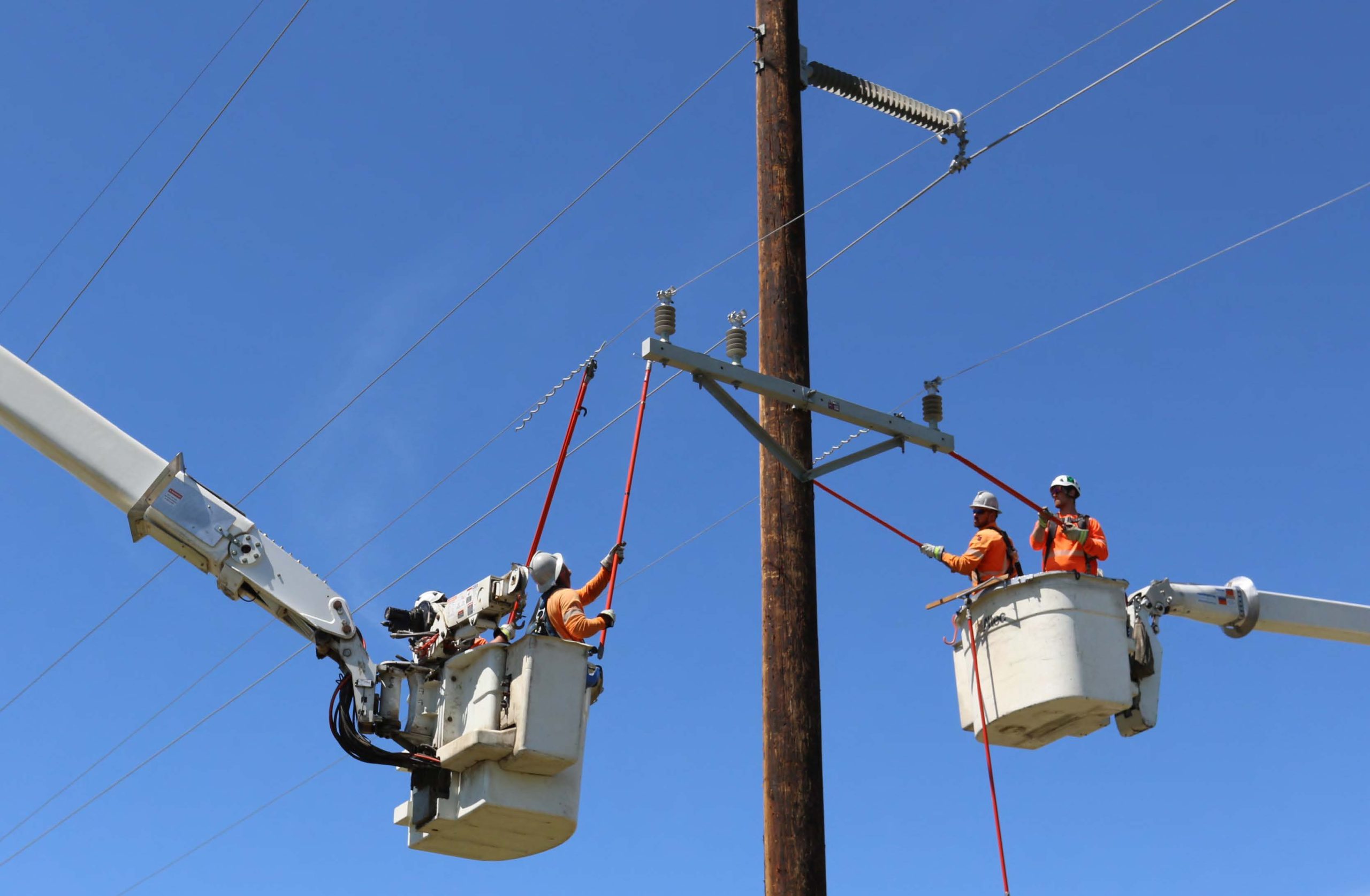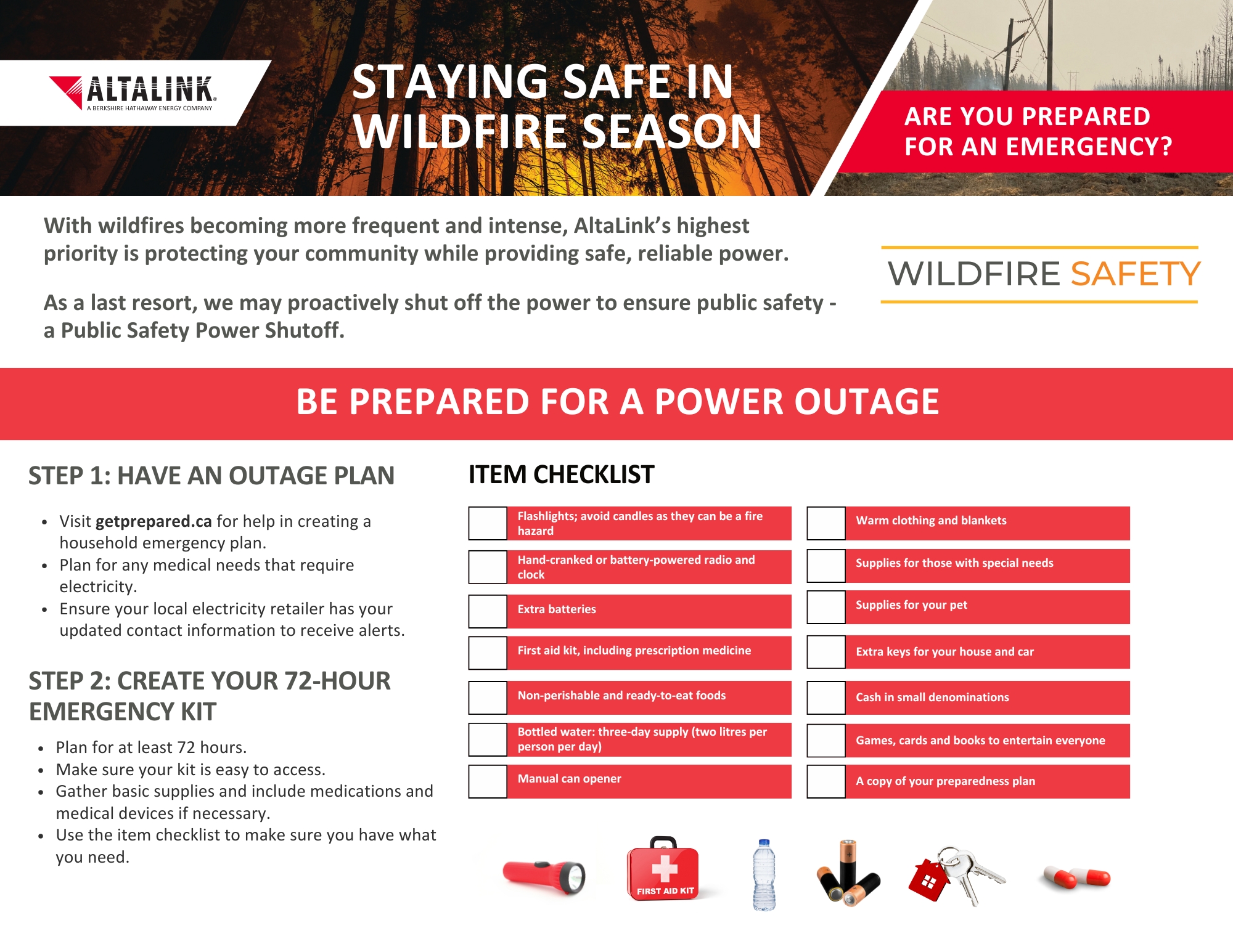With wildfires becoming more frequent and intense, AltaLink’s highest priority is protecting your community while providing safe, reliable power. Reducing the likelihood that our system contributes to wildfires is a critical part of our job.
Learn more about what we’re doing below and in the video on this page.
Fire prevention measures
AltaLink was the first utility in Canada to implement a wildfire mitigation plan in 2019. Our approach is based on a science-backed wildfire model created by external wildfire experts to identify higher risk fire areas in AltaLink’s service territory.
Our wildfire mitigation plan includes the following safety measures and system enhancements to reduce risk:

Enhanced vegetation clearing practices
Vegetation management is a critical part of the work we do to protect communities while delivering safe and reliable power.
A tree making contact with a line can potentially cause a fire and lead to an interruption in power for entire communities. To minimize wildfire risk we need to remove the potential for trees to contact power lines.
Our enhanced vegetation management practices are focused on maintaining safe clearance distances around our power lines by:
- performing vegetation inspections
- tree trimming to manage overhang
- removing trees within the right-of-way
We pay attention to trees that are an imminent risk of falling on the line or that are tall enough to potentially make contact with the line.
Keeping the right-of-way clear means keeping the lights on.
Learn more about AltaLink’s Canmore area vegetation management work.
Increased inspections
By proactively increasing our inspections in high-risk fire areas we can identify potential threats that need mitigating.
This includes:
- increasing inspection frequencies to twice a year (or more) on lines in high-risk fire areas
- accelerating the time to perform required asset updates to resolve concerns within 12 months


System strengthening
We’re strengthening our transmission system to reduce risk. This includes rebuilding, replacing or modifying existing assets.
Current examples include:
Situational awareness and preparedness
We continue to evolve our wildfire mitigation program to increase situational awareness and expand our preparedness.
This includes:
- reviewing daily hazard forecast reports
- installing cameras and weather stations throughout our service area
- working with local emergency service and community leaders to expand and enhance existing emergency response plans
- piloting new technologies that may provide early indication of a potential wildfire risk
- where required, deploying additional resources during extreme conditions to monitor and assess the area
- implementing Public Safety Power Shutoff protocols as a last resort measure during extreme conditions

Public Safety Power Shutoff
During extreme and dangerous weather conditions where the threat of sparking a fire is extreme or a fire is already burning near our facilities, we may proactively shut off the power to our impacted transmission lines until conditions are safe to turn it back on. This will also de-energize the electricity distribution system connected to our lines in the area.
The Public Safety Power Shutoff is intended as a last resort preventative measure to ensure public safety.
Conditions that could trigger a Public Safety Power Shutoff
Each situation is unique – no single factor drives a Public Safety Power Shutoff. We monitor a range of factors before executing a Public Safety Power Shutoff:

What you can expect
Wildfire conditions can change rapidly. While there is no set timeline for Public Safety Power Shutoffs, we’re committed to providing information in the timeliest manner possible.
- Advanced warning: Whenever possible, we will provide advance notice of a Public Safety Power Shutoff. Although worsening conditions may require swift action, our goal is to alert you as early as possible before an outage.
- Continued updates: As conditions change on the ground, we will keep you informed before, during and after a Public Safety Power Shutoff. Updates will be delivered via a range of channels and through coordination with local emergency organizations.
- Safety inspection: Once the extreme weather conditions have passed, crews will inspect affected power lines and equipment for damage and debris before restoring power.
- Power restoration: We will restore your power as quickly as we safely can.
We will use all communication channels available to us to notify customers and community stakeholders. This includes outbound calls, social media updates, media advisories, website banners and alerts.
AltaLink works closely with our electricity distribution partners to communicate with customers in the areas where we operate. When communicating before, during and after a Public Safety Power Shutoff, you may receive alerts from FortisAlberta. Please ensure that you update your contact information with your local electricity retailer to receive updates.
For more information and to sign up for outage alerts, please visit Power Outage Alerts (fortisalberta.com) or call 310-WIRE.
How you can prepare
It is difficult to predict how long a Public Safety Power Shutoff will last because it is based on a number of variables. It will last until the risk is eliminated and conditions are safe to turn it back on.
It’s important to be prepared for the potential of any emergency:
- Create an emergency plan that includes how you will manage without power and what to consider if you need to evacuate
- Prepare an emergency kit with supplies and materials to last at least 72 hours
- Plan for any medical needs that require electricity
- Ensure your local electricity retailer has your updated contact information to receive alerts
- Follow AltaLink on social media for the latest updates
For more information on how to plan for an extended power outage, visit Power Outage Safety.
For more information on how to plan for any emergency, visit Get Prepared.
You can download a copy of the guide below to use as a reference in the event of a power outage.
